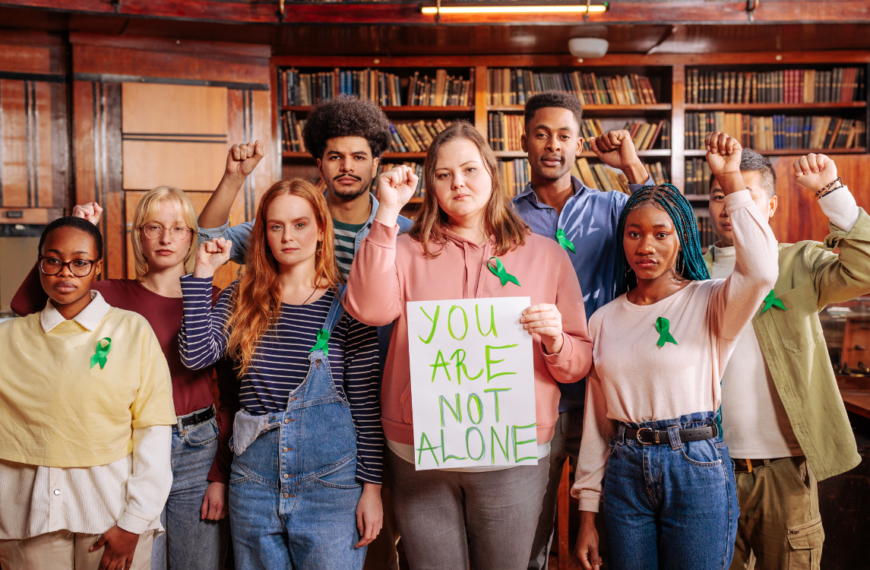Mental health is a vital component of overall well-being, yet recognizing when something isn’t right can be challenging. Many individuals struggle to identify signs of mental health issues, whether in themselves or in those around them. This blog post aims to highlight common indicators of mental health struggles and provide guidance on what to do when you notice these signs.
Understanding Mental Health Issues
Mental health issues can manifest in various ways, impacting thoughts, feelings, and behaviors. While everyone experiences ups and downs, persistent changes in mental and emotional health can signal deeper issues. Recognizing these signs early can lead to timely intervention and support.
Common Signs of Mental Health Issues
1. Changes in Mood:
– Look for persistent feelings of sadness, irritability, or mood swings. If someone appears unusually happy one moment and deeply upset the next, it may indicate an underlying issue.
2. Withdrawal from Social Activities:
– A noticeable decline in social interactions or a lack of interest in previously enjoyed activities can be a warning sign. This withdrawal may stem from feelings of anxiety, depression, or low self-worth.
3. Changes in Sleep Patterns:
– Insomnia, oversleeping, or sleep disruptions can indicate mental health struggles. Difficulty falling or staying asleep may be linked to stress, anxiety, or depression.
4. Changes in Appetite or Weight:
– Significant weight loss or gain, or noticeable changes in eating habits, can be signs of emotional distress. Some may turn to food for comfort, while others may lose interest in eating altogether.
5. Decline in Performance:
– A drop in academic or work performance, increased absenteeism, or difficulty concentrating can suggest mental health challenges. If someone who was once diligent becomes disengaged, it may warrant concern.
6. Excessive Worry or Fear:
– Intense feelings of anxiety or panic that interfere with daily activities are common signs of anxiety disorders. Recognizing when worries become overwhelming is crucial.
7. Feelings of Hopelessness:
– Expressions of hopelessness or helplessness can indicate severe mental health issues. If someone frequently mentions feeling trapped or believes things will never get better, they may need support.
8. Substance Abuse:
– Turning to alcohol or drugs as a coping mechanism can signal mental health struggles. Substance abuse is often a way to escape or numb emotional pain.
9. Physical Symptoms:
– Frequent headaches, stomachaches, or unexplained physical ailments can sometimes stem from mental health issues. The mind-body connection is powerful, and emotional distress can manifest physically.
10. Risky Behaviors:
– Engaging in risky or self-destructive behaviors, such as reckless driving, self-harm, or other dangerous activities, is a serious sign that someone may be struggling.
Recognizing Signs in Yourself
Self-awareness is crucial for maintaining mental health. Here are some steps to recognize signs of mental health issues within yourself:
– Reflect on Your Feelings: Take time to check in with your emotions. Journaling can help identify patterns in your mood and triggers for emotional distress.
– Monitor Changes: Notice any significant changes in your behavior, sleep, or appetite. Are there specific situations or times when you feel particularly low or anxious?
– Seek Feedback: Sometimes, it’s helpful to ask trusted friends or family members if they’ve noticed changes in your behavior. They may provide insights you hadn’t considered.
– Trust Your Instincts: If you feel that something isn’t right, trust your instincts. Your feelings are valid, and seeking help is a positive step.
Recognizing Signs in Others
When it comes to supporting others, awareness and compassion are key. Here are some tips for recognizing mental health issues in those around you:
– Observe Changes: Pay attention to any noticeable shifts in behavior, mood, or social engagement. If someone seems different from their usual self, it may be worth checking in.
– Listen Actively: Create a safe space for open conversation. Listen without judgment and encourage others to share their feelings. Sometimes, just knowing someone cares can make a difference.
– Look for Patterns: If you notice consistent signs over time—such as repeated withdrawal or mood changes—it’s important to address your concerns directly and compassionately.
– Approach with Care: If you suspect someone is struggling, approach them gently. Use “I” statements to express your concerns, such as, “I’ve noticed you seem a bit down lately. Is everything okay?”
What to Do Next
If you or someone you know is exhibiting signs of mental health issues, here are steps to take:
1. Seek Professional Help:
– Encourage a visit to a mental health professional. Therapy, counseling, or medication may be beneficial.
2. Offer Support:
– Be there for your loved ones. Offer to accompany them to appointments or simply be a listening ear.
3. Educate Yourself:
– Understanding mental health issues can empower you to offer better support. Learn about specific conditions and treatments available.
4. Encourage Healthy Habits:
– Promote activities that support mental well-being, such as exercise, healthy eating, and mindfulness practices.
5. Be Patient:
– Recovery takes time. Be patient and understanding as individuals navigate their mental health journey.
Conclusion
Recognizing the signs of mental health issues in yourself and others is essential for promoting well-being and encouraging early intervention. By being aware and informed, we can create a supportive environment that fosters healing and understanding. Remember, mental health is just as important as physical health, and reaching out for help is a sign of strength, not weakness. Whether you are struggling or supporting someone who is, know that you are not alone, and there is always hope for recovery.


















